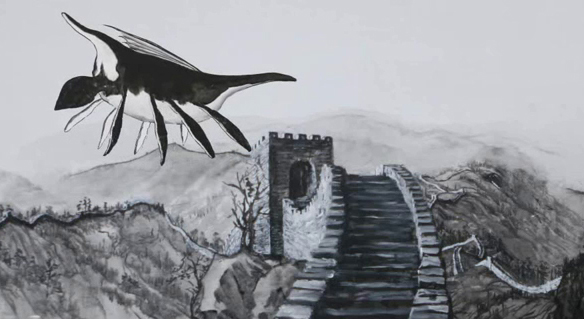Animating the Inanimate
Qiu Anxiong’s “New Book of Mountains and Seas”
Identifier (Artikel)
Abstract
This paper focuses on the first installment of Qiu Anxiong’s trilogy of animations New Book of Mountains and Seas (2006, 2008, 2017). Replete with fantastical creatures, Qiu’s films immediately call to mind their namesake, the Classic of Mountains and Seas, an encyclopedia of strange beasts written and compiled between the fourth to first century BCE. His animations show the contemporary world as if seen through the eyes of someone living thousands of years ago, alive during the time of the original classic. Rather than casting this subject-position as “irrational” and backwards, Qiu mines the generative possibilities of adopting this new logic of perception. In doing so, he brings together two distinct ways of presenting the world. The first relays the modern myths and universal assumptions constituting our contemporary reality. The second destabilizes divisions between the animate and inanimate to challenge how this narrative led to the disavowal of animism to begin with. In restituting animism, the artist offers an alternative to the pictured story of predation, extraction, and consumption.
Statistiken


Lizenz

Dieses Werk steht unter der Lizenz Creative Commons Namensnennung - Nicht-kommerziell - Keine Bearbeitungen 4.0 International.


